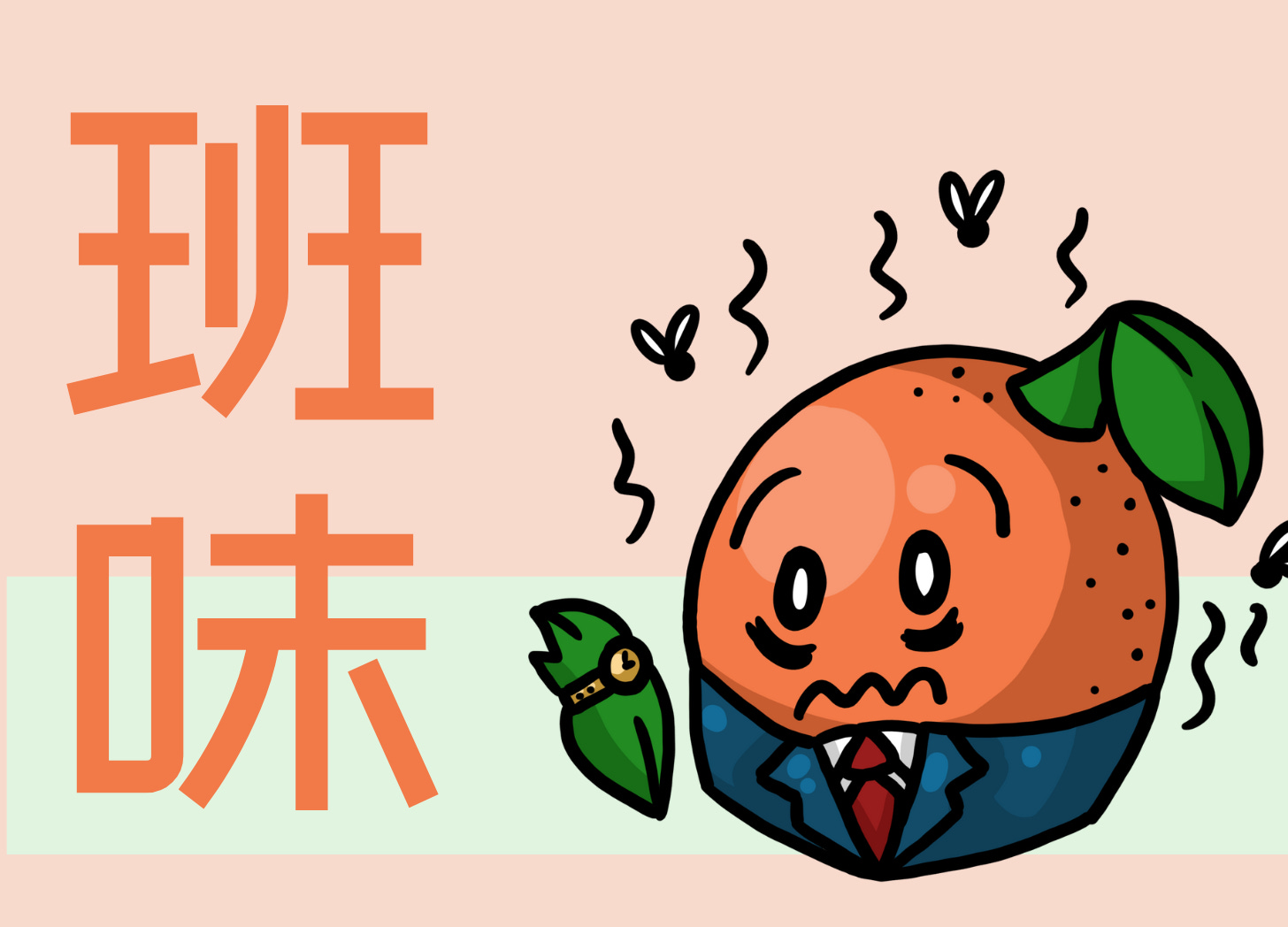Office Stench: A Mix of Coffee, Blame, Fatigue, and Despair
A New Way Young Chinese Describe Their Miserable, Overworked Lifestyle
Word of the Week: 班味 (bān wèi)
Meaning: Office stench
It’s nothing new—it has been happening even before the COVID-19 pandemic. The Chinese, particularly the younger generation, are exhausted from being overworked, spending more time in offices than enjoying life.
In recent months, a new term, 班味 (bān wèi) — "Office Stench" — has been adopted by netizens across China to describe the feeling of an overworked and meaningless office lifestyle.
But what does someone smell like after a full day at the office?
中国网民形容班味是冰美式的苦味、领导画的饼味、同事甩的锅味,以及听说有人休假去旅游的酸味。
班味有几项明显特征:精神压力大、体态和体质偏差、外貌走下坡路,甚至眼里暗淡无光,难怪有人说不工作便是最好的医美。
社会观察人士认为,这标志着中国年轻一代的心态发生了转变,他们不再把勤奋工作视为奋发向上的崇高精神、人生胜利组的必经之路,而是更加注重实现工作与生活的平衡。
画饼 (huà bǐng) - Literally "drawing a cake," a metaphor for making empty promises or unrealistic goals.
甩锅 (shuǎi guō) - Shifting blame to others.
精神压力 (jīng shén yā lì) - Mental stress.
走下坡路 (zǒu xià pō lù) - To go downhill, metaphorically indicating deterioration.
暗淡无光 (àn dàn wú guāng) - Dim and lifeless, often used metaphorically for lackluster eyes or spirit.
奋发向上 (fèn fā xiàng shàng) - Striving upward with enthusiasm and vigor.
崇高精神 (chóng gāo jīng shén) - Noble spirit or lofty ideals.
人生胜利组 (rén shēng shèng lì zǔ) - "Winners in life," referring to those who achieve traditional success.
必经之路 (bì jīng zhī lù) - The only path or an unavoidable route.
Chinese netizens describe "Office Stench" as the bitterness of iced Americanos, the false promises from leaders, the blame-shifting from colleagues, and the envy of hearing someone went on vacation.
"Office Stench" has several distinct characteristics: high levels of mental stress, deteriorating physical health and posture, declining appearance, and even lifeless eyes. No wonder some say that not working is the best form of cosmetic treatment.
Social observers believe this marks a shift in the mindset of China's younger generation. They no longer see hard work as a noble spirit of striving upward or a guaranteed path to success. Instead, they place greater emphasis on achieving a balance between work and life.
此前,有另一网络热梗“累丑”,意思是因劳累造成的丑感。
短时间内五官没有变化,体重没有变化,皮肤没有变化。但是因为连续熬夜或加班或高强度劳动或没有良好的休息后,整个人呈现出一种枯草一样被吸干的丑感。
久而久之,因过度劳累开始带来了视觉变化,如黑眼圈、面色蜡黄、眼皮因疲劳而沉重等。
班味的意思在“累丑”的基础上更上一层楼。除了视觉上的丑外,还有外形上的变化,他们一般不化妆、不修边幅,穿宽松的衣服,以及整体上看起来缺乏活力。
网络热梗 (wǎng luò rè gěng) - Viral internet meme or term.
五官 (wǔ guān) - The five facial features: eyes, nose, mouth, ears, and eyebrows.
枯草 (kū cǎo) - Withered grass, used metaphorically to describe a drained appearance.
久而久之 (jiǔ ér jiǔ zhī) - Over time; as time goes on; eventually.
黑眼圈 (hēi yǎn quān) - Dark circles under the eyes.
面色蜡黄 (miàn sè là huáng) - Sallow complexion, a yellowish or unhealthy skin tone.
眼皮沉重 (yǎn pí chén zhòng) - Heavy eyelids.
不修边幅 (bù xiū biān fú) - Unkempt appearance.
Previously, another viral internet term, “累丑” (lèi chǒu), emerged, meaning an unattractive appearance caused by exhaustion.
In the short term, facial features, body weight, and skin condition remain unchanged. However, after consecutive late nights, overtime work, intense labor, or insufficient rest, a person begins to exhibit a withered and drained appearance akin to dried grass.
Over time, excessive fatigue starts to cause visible changes, such as dark circles under the eyes, a sallow complexion, and heavy eyelids due to tiredness.
The meaning of “班味” (bān wèi) takes “累丑” to another level. Beyond visual unattractiveness, it also includes changes in appearance, such as not wearing makeup, being unkempt, wearing loose clothing, and generally looking lacking in vitality.
资深办公室职员被嘲笑沉浸在难以摆脱的班味之中。
比如,他们即使在度假时也会习惯性地查看与工作相关的群聊,并在微信上本能地回复“是的,收到了”来确认消息。
有些人甚至对与工作无关的活动失去了兴趣。
资深 (zī shēn) - Senior, experienced.
办公室职员 (bàngōng shì zhí yuán) - Office worker, office staff.
嘲笑 (cháo xiào) - To mock, to laugh at.
难以摆脱 (nán yǐ bǎi tuō) - Hard to escape, difficult to shake off.
Senior office workers are mocked for being immersed in the inescapable "office stench."
For example, even when on vacation, they habitually check work-related group chats and instinctively reply "Yes, got it" on WeChat to confirm messages.
Some people have even lost interest in activities unrelated to work.
有人说,去掉班味,就连下班都不行,只有辞职才可以。因为辞职或休假被认为是对抗“班味”的最有效方法。
在中国的社媒上就很流行发布自己停止工作几个月的前后对比照,他们通常看起来更快乐、更有活力。
一些网民更夸张地表示,辞职是改善外表的最佳整容手术。
其他人则分享了如何去上班,而不染上或少染一点班味的攻略。
这些建议包括将工作与个人生活分开,在非工作时间避免去与办公室有关的地方,以及将衣柜里的工作服与休闲服分开。此外,要在工作之外的时间培养自己的爱好和兴趣。
整容手术 (zhěng róng shǒu shù) - Cosmetic surgery.
染上 (rǎn shàng) - To be infected with, to be affected by.
攻略 (gōng lüè) - Strategy, guide.
Some say that to get rid of the "office stench," even leaving work isn't enough—only quitting can do the job. This is because quitting or taking time off is considered the most effective way to fight the "office stench."
On Chinese social media, it is quite popular to post before-and-after photos showing the contrast of someone who has stopped working for several months. They usually look happier and more energetic.
Some netizens even exaggerate by saying that quitting is the best cosmetic surgery for improving one's appearance.
Others share strategies on how to go to work without being infected by, or minimizing, the "office stench."
These tips include separating work from personal life, avoiding work-related places during non-working hours, and keeping work clothes and casual clothes separate in the wardrobe. Additionally, it's important to develop hobbies and interests outside of work.
How do you feel about all of this? Don’t you feel like you smell a bit “office-y” when you get home after work?
Antoine & Dorota






